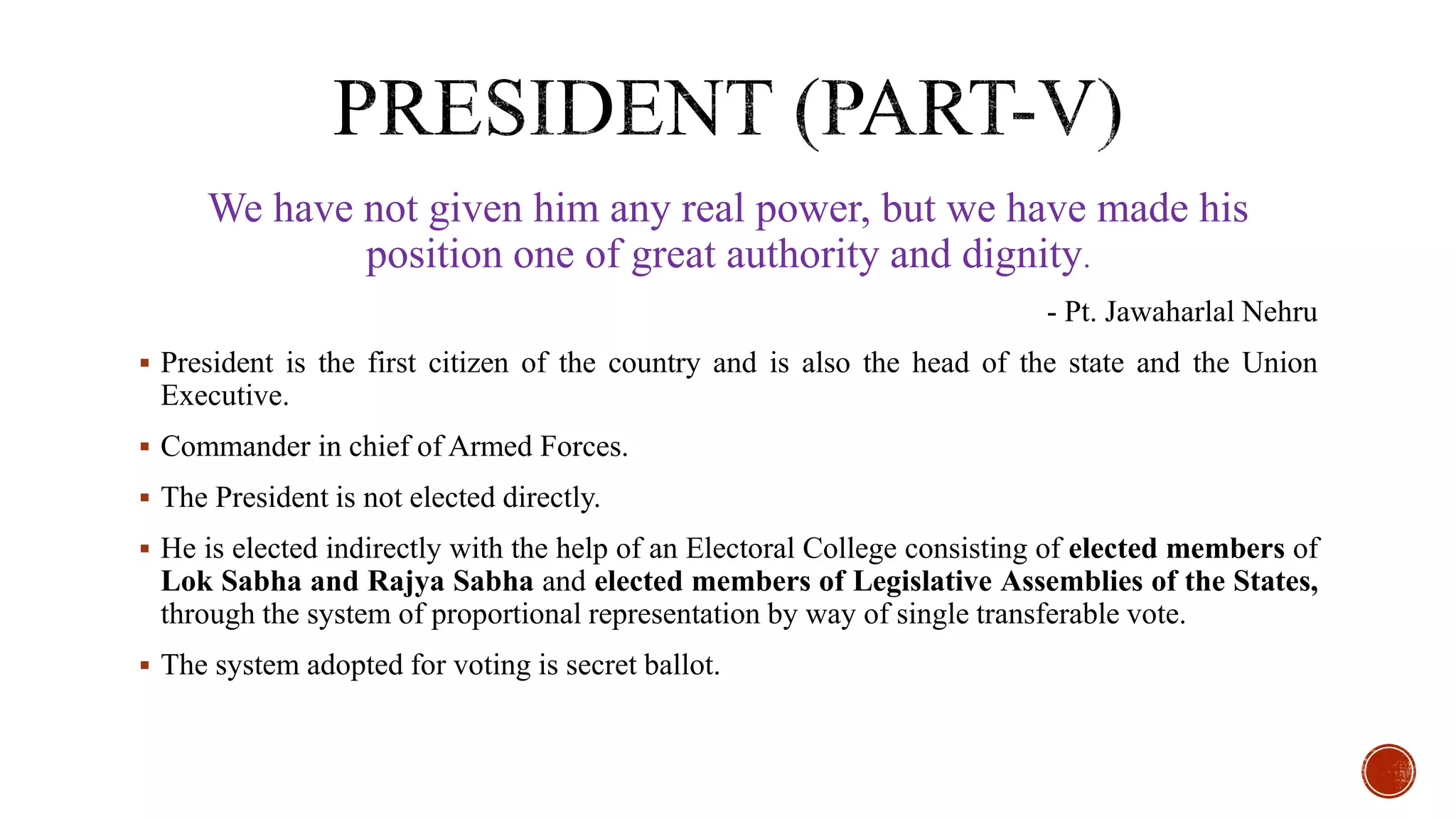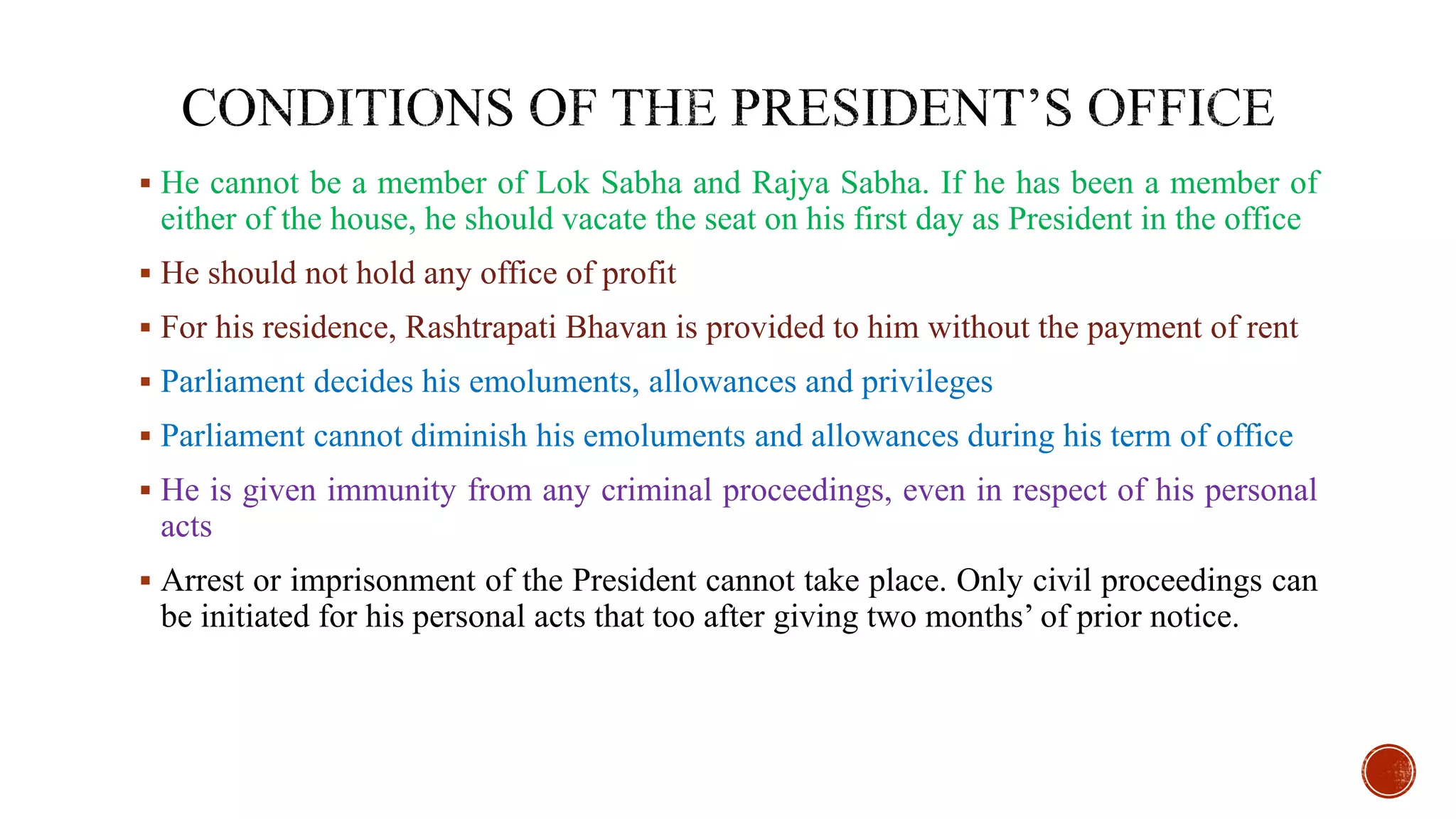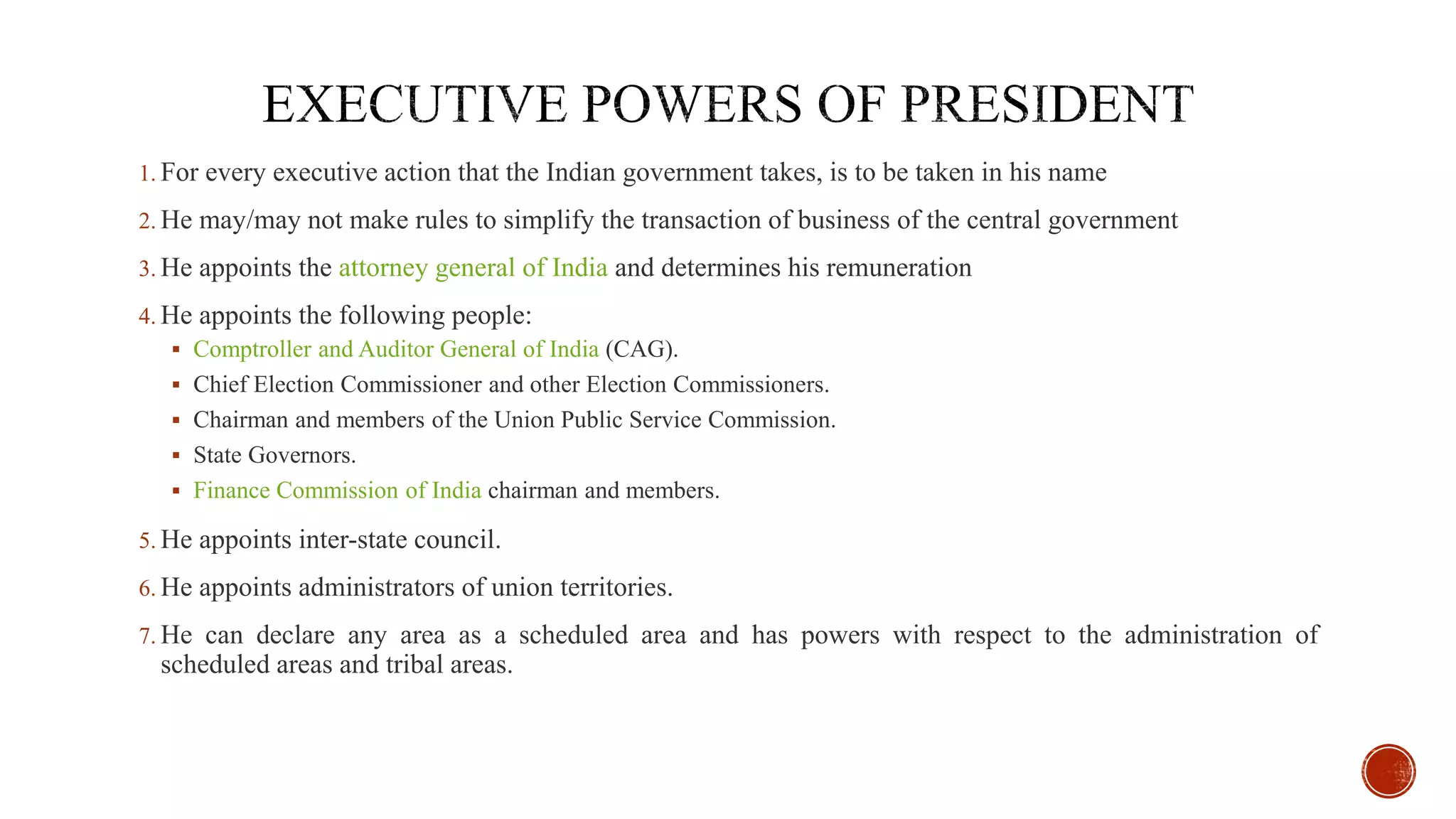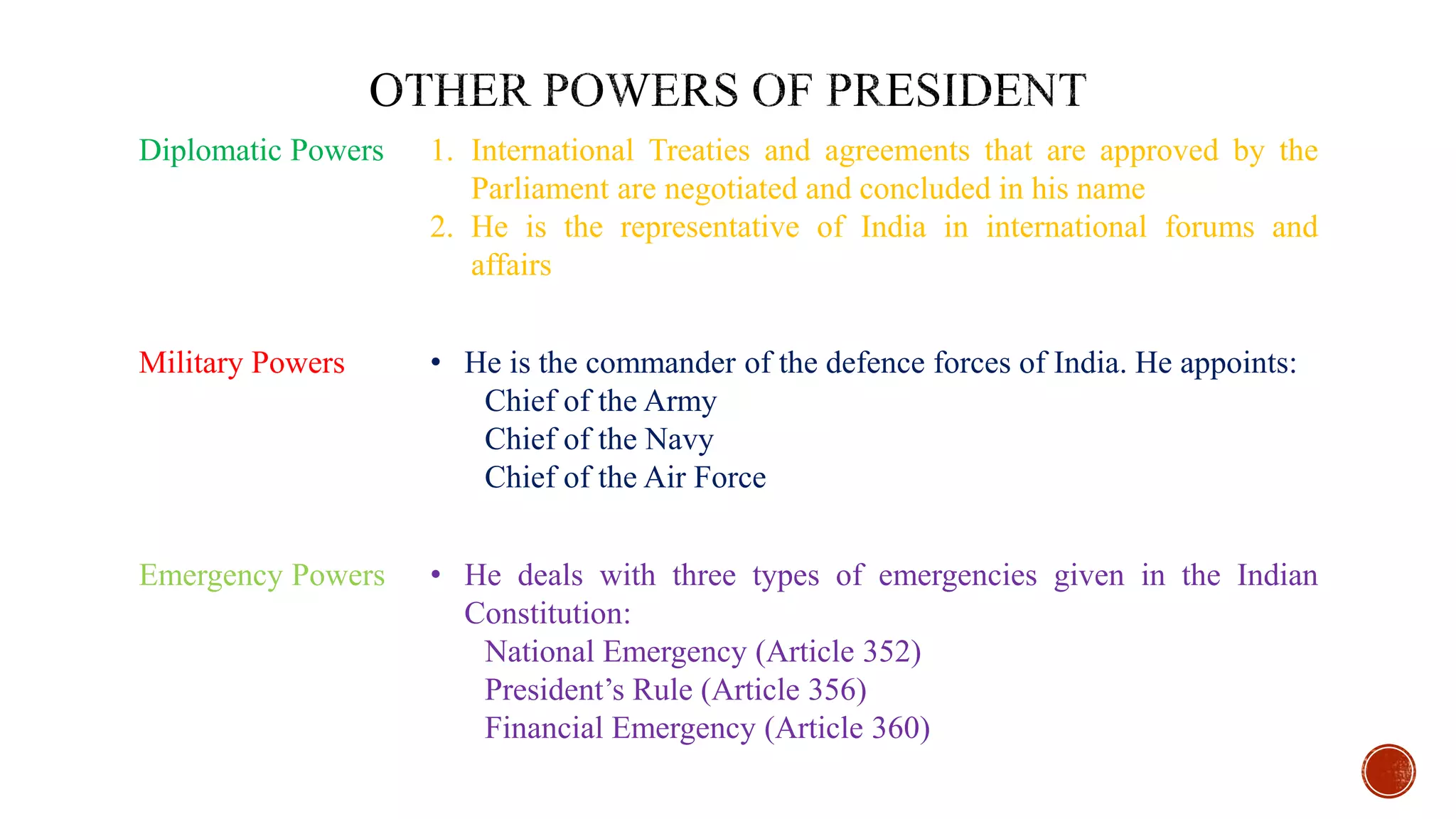The document outlines the role, election process, and powers of the President of India, emphasizing that the President is indirectly elected by an electoral college and serves a term of five years. It details qualifications for the presidency, legislative, financial, judicial, and emergency powers, as well as impeachment procedures for constitutional violations. Key responsibilities include appointing various officials, summoning parliament, and serving as the commander-in-chief of the armed forces.











